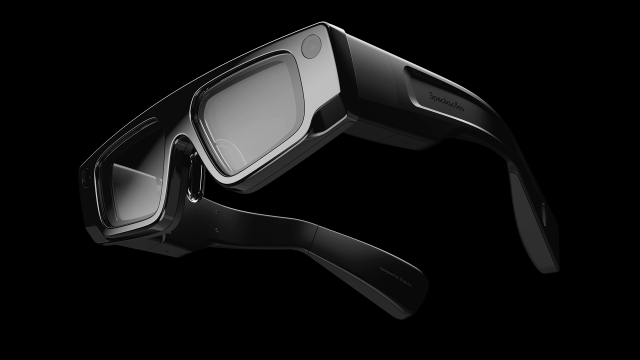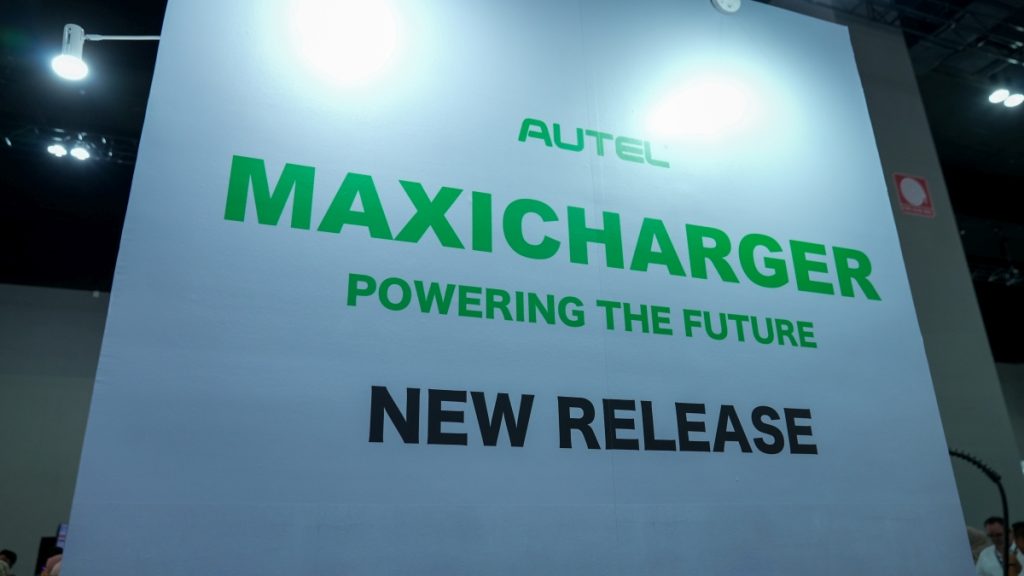Today Snap Inc, the company behind Snapchat, announced the latest version of its Spectacles AR Glasses which the company is calling Spectacles ’24. The new device makes notable improvements to field-of-view, resolution, and hand-tracking, and overhauls its software stack. But it’s limited enough to remain targeted at developers. Spectacles ’24 is available starting today, and the company is selling it to developers for $100 per month on a one-year commitment (ultimately totalling $1,200).
More than three years after releasing Spectacles 4—the first in the Spectacles lineup to include displays and real AR capabilities—Snap Inc is doubling down with a new generation of AR glasses. Spectacles ’24 makes key improvements as it inches its way toward a consumer-ready version of such a device.
Spectacles ’24 Specs and Pricing
Spectacles ’24 is a pair of standalone AR glasses. That means everything that powers the device is built directly into the glasses with nothing needing to be tethered to the device. Here’s a look at the Spectacles ’24 specs side-by-side with the prior generation.
| Spectacles ’24 | Spectacles 4 | |
Visuals |
||
| Display | 2×LCoS | |
| Resolution | unknown | 480×564 |
| Pixels Per-degree (claimed) | 37 | unknown |
| Refresh Rate | 120Hz | unknown |
| Optics | Waveguide (transparent with dynamic dimming) | Waveguide (transparent) |
| Field-of-view (claimed) | 46° (diagonal) | 26.3° (diagonal) |
| Optical Adjustments | IPD (software adjustment) | unknown |
| IPD Adjustment Range | 57mm to 71mm | unknown |
Performance & IO |
||
| Processor | 2×Snapdragon (unspecified) | Snapdragon XR1 |
| RAM | unknown | unknown |
| Storage | unknown | 32GB |
| Connectivity | Wi-Fi 6, GPS/GNSS | unknown |
| Connectors | USB-C | USB-C |
| Input | Hand-tracking, voice, smartphone controller | Hand-tracking |
| Audio | In-headset speakers | In-headset speakers |
| Microphone | 6× | 4× |
| Battery Life | 45 minutes (extendable with external battery) | 30 minutes (case holds up to four charges) |
| Weight | 226g | 134g |
Sensing |
||
| Headset-tracking | Inside-out (no external beacons) 13ms latency |
Inside-out (no external beacons) |
| Eye-tracking | No | No |
| Expression-tracking | No | No |
| On-board cameras | 2×RGB, 2×infrared | 2×RGB |
| Depth-sensor | Yes | No |
While we can see considerable improvements like a near-doubling of the field-of-view, more cameras for improved head and hand tracking, and increased battery life, this has come at the cost of the device’s overall weight. Spectacles ’24 weighs 226g while its predecessor weighs just 134g. The new Spectacles aren’t just heavier, they’re a bit bulkier too, still looking more like ‘goggles’ than ‘glasses’.
Spectacles ’24 inches closer to something that would be acceptable to consumers (in both specs and size), but isn’t there yet.

For now the company is focused on getting the device into the hands of developers to start building compelling applications. To that end, the company is offering an interesting pricing model: Spectacles ’24 is priced at $100 per month, over a one-year commitment—starting today. So while the company is ultimately asking $1,200 for the device, it hopes the monthly approach will lower the barrier to entry.
Software Overhaul & Social Focus

While the hardware is inching slowly toward consumer-readiness, Snap Inc is making larger strides on the software side. Spectacles ’24 is paired with a huge overhaul of the software layer.
The new ‘SnapOS’ effectively guts and replaces the software stack of the previous Spectacles, now with a common interface and interactions built around hand-tracking.
The company is trying to infuse SnapOS with social capabilities, including the ability for Spectacles ’24 to recognize other nearby glasses and seamlessly join their session for a co-located AR experience.

The glasses also support a ‘spectator’ mode which allows someone with a smartphone to look into your AR session to see what’s happening. Unlike spectator views on headsets like Quest and Vision Pro, the smartphone viewer actually sees the AR content from their own perspective, rather than just seeing a first-person view from the headset. However, that basic ‘see what I see’ mode of other headsets is also supported.
There’s some other interesting tie-ins for your smartphone too. Like the ability to use it as either a motion controller, virtual gamepad, or to mirror apps from your phone into Spectacles so you can have a floating (but non-interactive) view of the app inside the headset.
Of course these social and smartphone-extensible functions will only work for apps and experiences that are specifically designed with them in mind, but having these capabilities supported at the OS/SDK level opens up some interesting possibilities.
Lens Studio is the tool developers use to build AR experiences for both Snapchat and Spectacles, and today the company also just revealed the latest version.
The modern foundation of Lens Studio 5.0 supports even more complex, robust Lenses with TypeScript, JavaScript, and improved version control tools for team-based development. Additionally, SnapML makes it easy for developers to use custom ML models directly in Lenses to identify, track, and augment objects. We’re also excited to bring the power of cloud-hosted multimodal AI models to Spectacles through a new partnership with OpenAI. Soon, this will help developers bring new models to their Spectacles experiences to provide more context about what you see, say, or hear.
Snap Inc says the Spectacles software platform has “no developer tax,” meaning the company won’t take a cut of revenue from developers making money on the platform. Considering there’s currently no way to sell software on Spectacles (and no audience to speak of), that announcement might seem a little strange, but clearly the company is hoping to set developer expectations for what it eventually hopes will become a consumer product platform.







